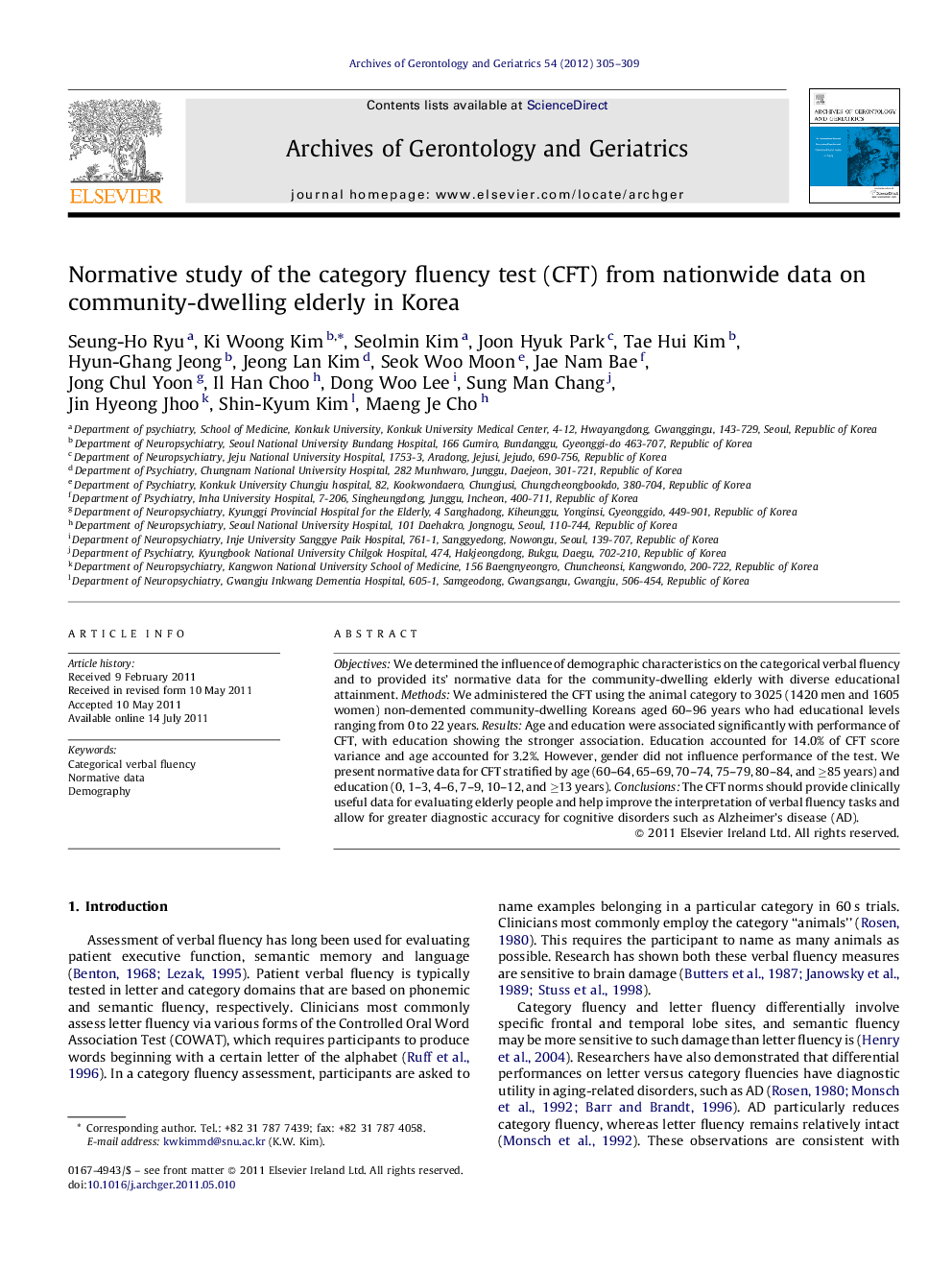| کد مقاله | کد نشریه | سال انتشار | مقاله انگلیسی | نسخه تمام متن |
|---|---|---|---|---|
| 1902970 | 1534450 | 2012 | 5 صفحه PDF | دانلود رایگان |

Objectives: We determined the influence of demographic characteristics on the categorical verbal fluency and to provided its’ normative data for the community-dwelling elderly with diverse educational attainment. Methods: We administered the CFT using the animal category to 3025 (1420 men and 1605 women) non-demented community-dwelling Koreans aged 60–96 years who had educational levels ranging from 0 to 22 years. Results: Age and education were associated significantly with performance of CFT, with education showing the stronger association. Education accounted for 14.0% of CFT score variance and age accounted for 3.2%. However, gender did not influence performance of the test. We present normative data for CFT stratified by age (60–64, 65–69, 70–74, 75–79, 80–84, and ≥85 years) and education (0, 1–3, 4–6, 7–9, 10–12, and ≥13 years). Conclusions: The CFT norms should provide clinically useful data for evaluating elderly people and help improve the interpretation of verbal fluency tasks and allow for greater diagnostic accuracy for cognitive disorders such as Alzheimer's disease (AD).
Journal: Archives of Gerontology and Geriatrics - Volume 54, Issue 2, March–April 2012, Pages 305–309